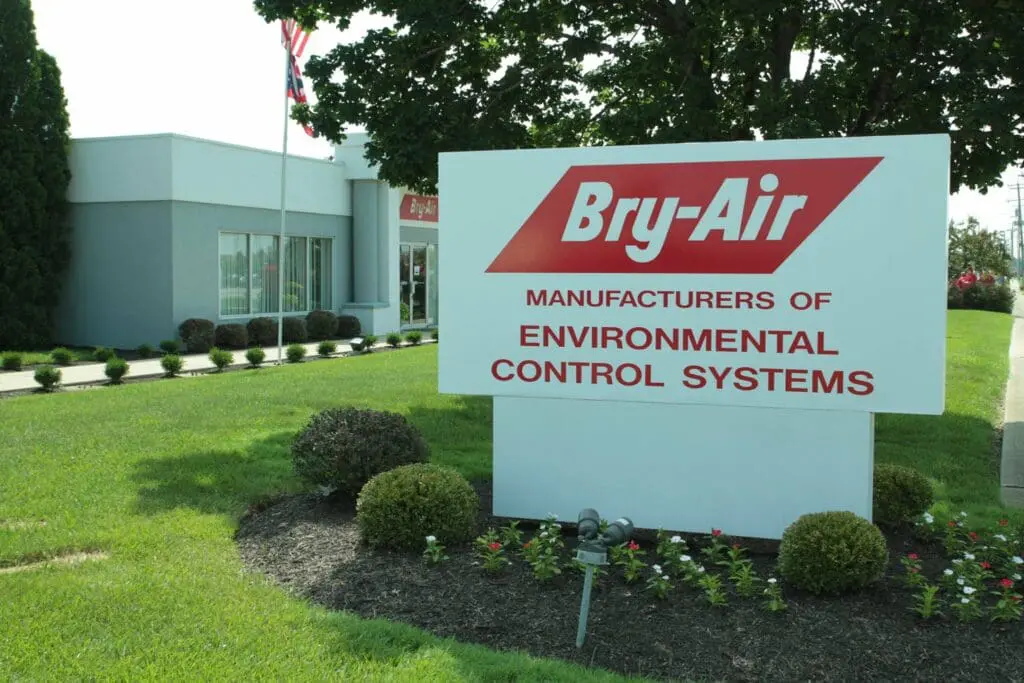Industrial settings often face challenges related to high humidity levels, which can have detrimental effects on the overall environment and processes. However, the implementation of dehumidification systems can provide significant benefits in such settings. Dehumidification helps to control moisture levels, prevent condensation, and create a more comfortable and efficient working environment.
Additionally, it helps to protect equipment, reduce the risk of mold growth, and improve product quality. In this article, we will explore these key benefits of dehumidification in industrial settings in more detail.

Dehumidification Benefits in Industrial Settings
Prevents Mold and Mildew Growth
One of the main benefits of dehumidification in industrial settings is the prevention of mold and mildew growth. High humidity levels create the perfect environment for these harmful substances to thrive, which can lead to health issues for employees and damage to equipment and materials. By maintaining optimal humidity levels, dehumidification systems help to eliminate this risk.
Protects Equipment and Machinery
Excessive moisture in the air can cause corrosion and rust on industrial equipment and machinery. This can lead to malfunctions, breakdowns, and costly repairs or replacements. Dehumidification helps to remove moisture from the air, protecting valuable assets and ensuring their longevity and efficiency.
Improves Indoor Air Quality
High humidity levels can lead to poor indoor air quality, which can have a negative impact on the health and productivity of employees. Dehumidification removes excess moisture, reducing the risk of respiratory issues, allergies, and other health problems caused by poor air quality. It creates a healthier and more comfortable working environment.
Reduces Odors
Moisture in the air can contribute to unpleasant odors in industrial settings. Dehumidification helps to eliminate these odors by reducing the moisture content in the air. This creates a more pleasant and odor-free work environment for employees and visitors.
Increases Energy Efficiency
High humidity levels can make the air feel warmer than it actually is, leading to increased use of air conditioning systems. Dehumidification helps to remove excess moisture from the air, allowing the air conditioning systems to operate more efficiently and reducing energy consumption. This can result in significant energy cost savings for industrial facilities.
Prevents Condensation
Condensation can occur when warm, moist air comes into contact with cooler surfaces. This can lead to water damage and mold growth on walls, ceilings, and other surfaces. Dehumidification helps to prevent condensation by reducing the moisture content in the air, protecting the structural integrity of the building and its contents.
Ensures Product Quality and Safety
In industries where product quality and safety are paramount, such as food processing or pharmaceutical manufacturing, maintaining proper humidity levels is crucial. Excessive moisture can negatively affect the quality and stability of products, leading to spoilage or loss of effectiveness. Dehumidification helps to ensure that products meet the required standards and remain safe for consumption or use.
Final Thoughts
Dehumidification offers numerous benefits in industrial settings, including the prevention of mold growth, protection of equipment, improvement of indoor air quality, reduction of odors, increased energy efficiency, prevention of condensation, and assurance of product quality and safety. Investing in a reliable dehumidification system can greatly enhance the overall efficiency, productivity, and well-being of an industrial facility.
Looking to control humidity in your industrial setting? Contact Bry-Air today to learn more about our top-notch dehumidification solutions. Say goodbye to moisture-related issues and hello to improved productivity and efficiency.
Industrial Dehumidification FAQs
What is industrial dehumidification?
Industrial dehumidification is the process of removing excess moisture from the air in large-scale industrial settings. It involves the use of specialized dehumidifiers that are designed to handle high humidity levels and large volumes of air.
Why is industrial dehumidification important?
Industrial dehumidification is important for a variety of reasons. Excess moisture in industrial environments can lead to issues such as mold growth, corrosion, equipment malfunction, and decreased worker productivity. By controlling humidity levels, industrial dehumidification helps to create a safer and more efficient working environment.
Where is industrial dehumidification used?
Industrial dehumidification is used in a wide range of industries, including manufacturing, food processing, pharmaceuticals, warehouses, and data centers. Any industry that deals with high humidity levels or moisture-sensitive products can benefit from industrial dehumidification.
How does industrial dehumidification work?
Industrial dehumidifiers work by drawing in moist air and passing it over a cooling coil. As the air cools, the moisture in the air condenses and is collected in a water tank or drained away. The dehumidified air is then reheated and released back into the environment.
Can industrial dehumidifiers be customized for specific needs?
Yes, industrial dehumidifiers can be customized to meet the specific needs of different industries and environments. They can be designed to handle high humidity levels, extreme temperatures, corrosive environments, or other unique conditions.
















